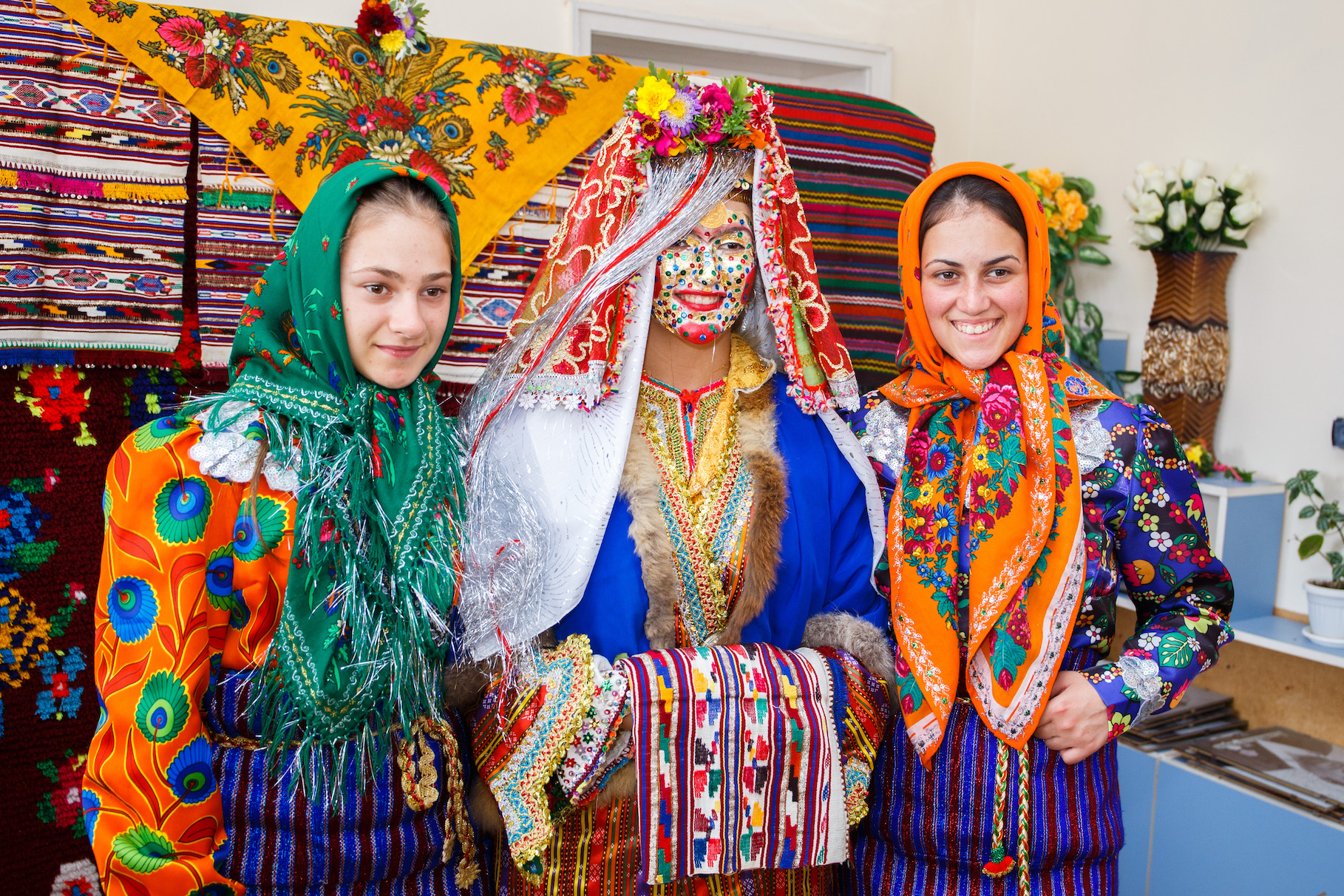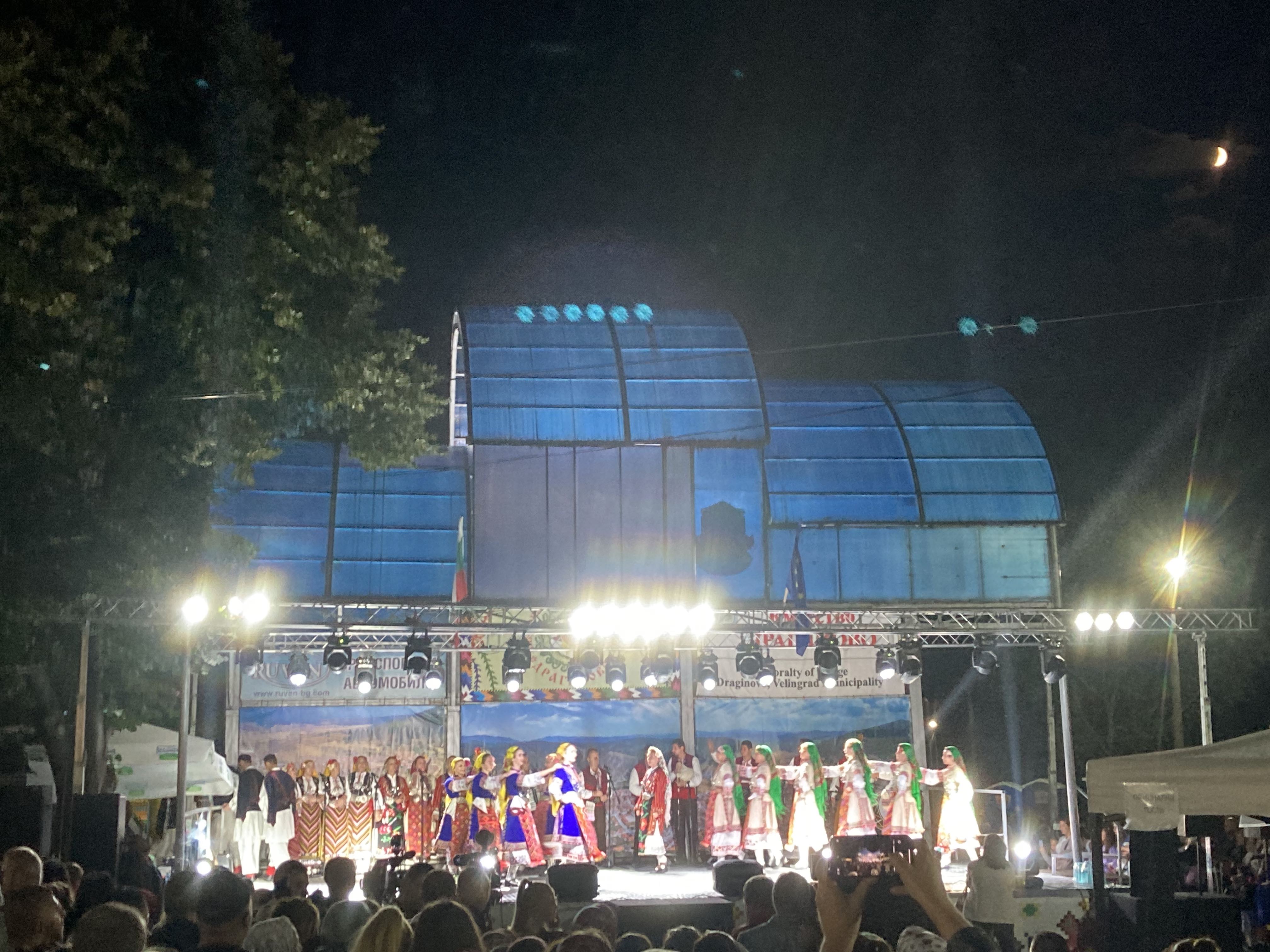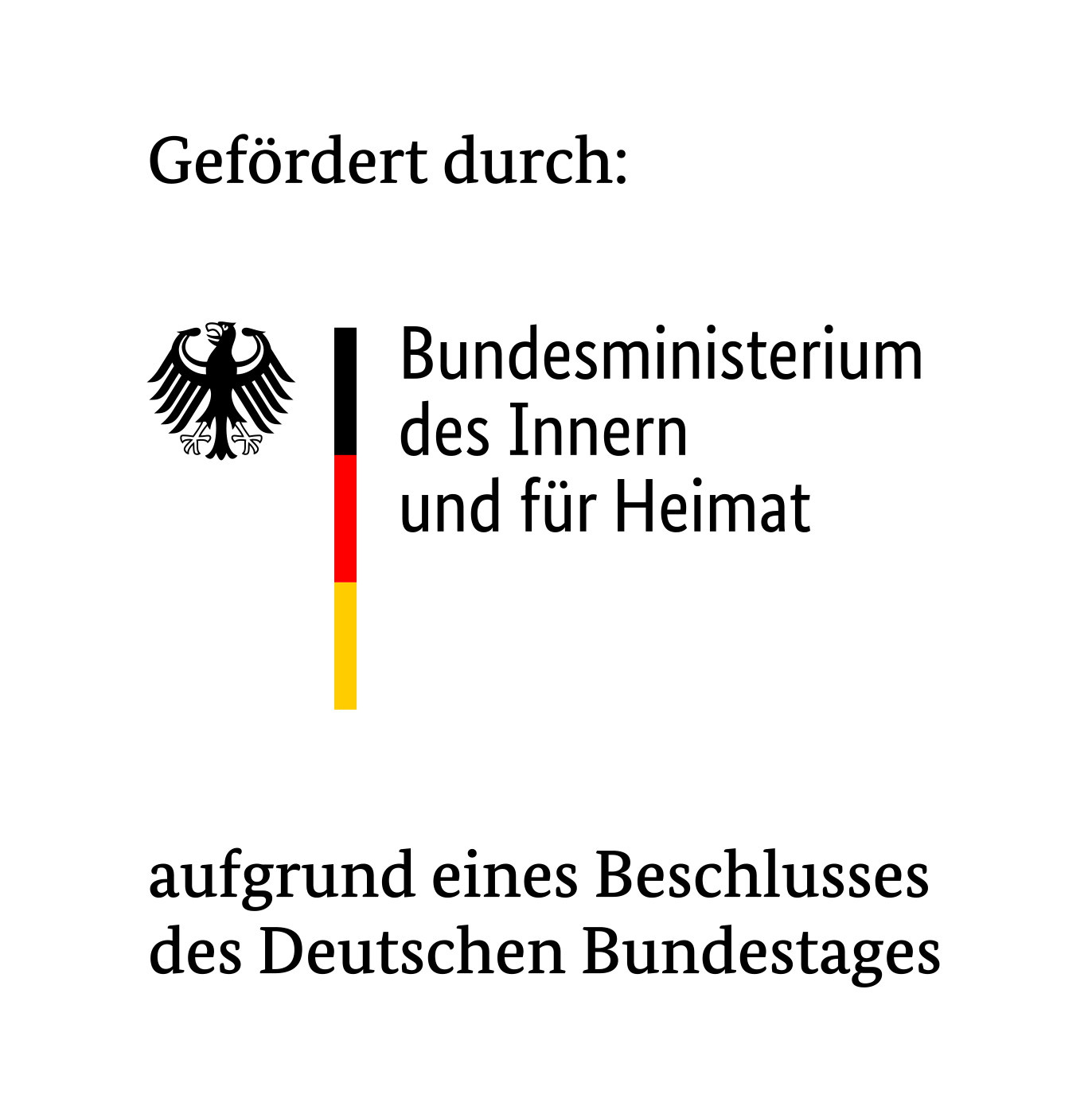What makes minority communities strong
13.09.2022Golden fragments, bright colours and sequins: These are the ingredients that transform a young Pomakin into an artistically made-up bride within 20 minutes. A truly unusual spectacle, which was offered to the participants of the annual meeting of the FUEN Non-Kinstate Working Group in Velingrad, Bulgaria, in the Museum of the Pomaks - and which impressed everyone very much. This insight into the culture was part of the comprehensive social programme of the host minority offered to the European guests during the four-day event from 31 August to 3 September 2022.

Fascinating sight: Make-up ritual of a Pomak bride. Photo: Kamen Mavrov.
There were 20 participants from seven countries and ten minorities - including Ladins from South Tyrol, West Frisians, North Frisians, Roma, Sorbs, Aromanians from North Macedonia and Albania, Pomaks from Greece and Karakachans from Bulgaria.
The core topic of the conference was the question of how community-building strategies can contribute to strengthening the minorities without a kin-state. Numerous presentations, discussions and working sessions provided insights into existing best practice models, including:
- the successful development of the Sorb community in Eastern Germany after reunification
- the exemplary integration of the Roma in Bulgaria through the "Amalipe" centre, which has, for example, set up special "development centres" for communities as well as school networks
- the creation of the office of a minority representative in the city of Bijeljina in Bosnia and Herzegovina, which created better networking between minorities and the majority, also at the administrative level
- campaigns that generate media attention, such as the "Mayor Friends of Roma" campaign, which sought the "most Roma-friendly mayor in Bosnia and Herzegovina".
Zora Popova, research associate at FUEN, complemented these insights with a presentation on good European examples of community building, with a focus on the experiences from Schleswig-Holstein and the German-Danish borderland.
After the informative exchange, the future focal points of the working group were also discussed at the meeting and Bahne Bahnsen was elected as speaker for another term of office 2022-2025.
The festive conclusion was a joint visit to the Pomak folk festival in the municipality of Draginovo, where the group was personally welcomed by the municipality administration and then once again received a lively impression of the music, dances and traditions of Pomak culture.

At the folk festival in Draginovo, Bulgaria. Photo: FUEN.
***
The Non-Kinstate Working Group operates under the umbrella of FUEN (Federal Union of European Nationalities), which represents the interests of Europe's autochthonous national minorities, nationalities and language communities. FUEN currently represents more than 100 member organisations from 35 European countries.

COMMUNIQUÉ DE PRESSE
- New secretariat in the Polish parliament supports national and ethnic minorities
- FUEN calls for the inclusion of the Ladin language at the 2026 Winter Olympic Games
- FUEN Urges UN Special Rapporteur to Advocate for a Coherent EU Minority Protection Framework
- FUEN wishes you a peaceful Christmas season, restful days and a bright, hopeful start to the new year!
- FUEN calls on the EU to act over systematic ethnic-based land confiscations in Slovakia
- Women of Minorities conference in Budapest calls for structural change to ensure equal political participation of minority women
- FUEN President Olivia Schubert at UN Forum on Minority Issues in Geneva
- "Laboratory of Peace": 28th Seminar of Slavic Minorities held in European Capital of Culture Gorica/Gorizia
- Equality in Political Participation and Representation: Third “Women of Minorities” Conference to Be Held in Budapest
- FUEN Working Group on Education discusses challenges and future of minority schooling in Europe














